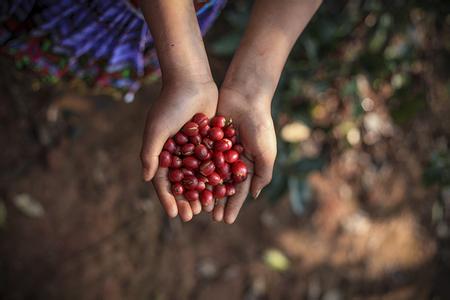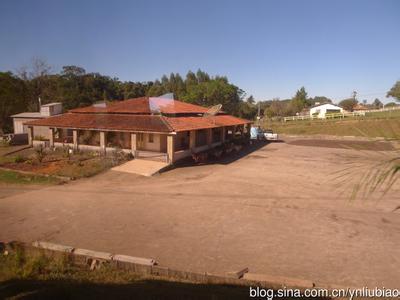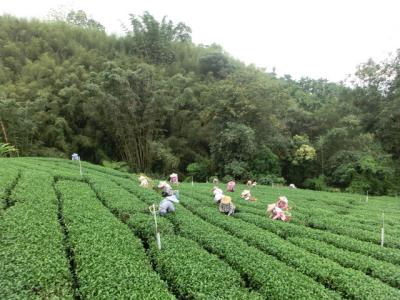Description of taste and flavor of gardening geisha coffee beans in Candlestick, Costa Rica
Description of taste and flavor of gardening geisha coffee beans in Candlestick, Costa Rica
Tarrazu in Costa Rican coffee is one of the major coffee producing areas in the world. The coffee produced has a light and pure flavor and pleasant aroma. Tarasu, located in the south of the country's capital, San Jos é, is one of the most valued coffee growers in the country. " The coffee "La Minita Tarrazu" is a famous local product.
Yellow honey: about 40% of the pectin is removed; the drying method requires the most direct heat absorption, receives the most light drying, and lasts for about 8 days to reach a stable water content.
Red honey: about 25% of the pectin is removed; it takes longer to dry than yellow honey, and reduces direct exposure to sunlight, even in shading sheds, lasting about 12 days.
Black honey: almost no removal of pectin; drying takes the longest time, lasting at least 2 weeks, using covering to avoid too strong sunlight, prevent drying too fast, and make sugar conversion more fully.
Blueberries, coffee flowers, maple syrup
[wet fragrance] Malic acid, oranges, berries, flowers, daily C.
[sips] the scent of flowers, maple syrup
After peeling, the peel and pulp of the coffee fruit are recovered as feed for livestock, or converted into organic fertilizer, as well as coffee bean dryer fuel. It can be said that in every process of coffee production, Costa Rica complies with the requirements of maintaining the natural environment.
Coffee is an important export product of Costa Rica, which earns a lot of foreign exchange for the country every year and is vividly called the "golden seed". Costa Rica's unique natural conditions are very suitable for growing high-quality coffee varieties. Although the output is small, Costa Rican coffee always occupies an important position in the international boutique coffee market with its excellent quality.

Important Notice :
前街咖啡 FrontStreet Coffee has moved to new addredd:
FrontStreet Coffee Address: 315,Donghua East Road,GuangZhou
Tel:020 38364473
- Prev

Price and Flavor description of Salvadoran Coffee beans
El Salvador coffee beans price flavor description taste treatment grinding scale coffee fields are endless, most of them are harvested mechanically in order to meet the economic benefits. When 75% of the coffee fruit in the coffee garden turns red, mechanical harvesting is started, followed by the same pre-operation of washing, moving into the sink to remove floating beans, sifting out sunken beans, and then using a large pulp screening machine to dig out the pulp and remove it covered with pectin.
- Next

Flavor description of Yunnan Coffee A brief introduction to the production area of Grinding Calibration method
Yunnan Coffee Flavor description, texture characteristics, Grinding scale processing A brief introduction to the French production area the rise of the national brand of Chinese coffee conforms to the 1.4 billion Chinese Chinese Dream! Yunnan Dongyi small-grain coffee, bearing the century-old history of Yunnan coffee cultivation, has participated in international exhibitions many times, and has won the highest quality in the global coffee industry; it is responsible for turning Yunnan small-grain coffee into China's mainstream coffee and solving millions of coffee.
Related
- Detailed explanation of Jadeite planting Land in Panamanian Jadeite Manor introduction to the grading system of Jadeite competitive bidding, Red bid, Green bid and Rose Summer
- Story of Coffee planting in Brenka region of Costa Rica Stonehenge Manor anaerobic heavy honey treatment of flavor mouth
- What's on the barrel of Blue Mountain Coffee beans?
- Can American coffee also pull flowers? How to use hot American style to pull out a good-looking pattern?
- Can you make a cold extract with coffee beans? What is the right proportion for cold-extracted coffee formula?
- Indonesian PWN Gold Mandrine Coffee Origin Features Flavor How to Chong? Mandolin coffee is American.
- A brief introduction to the flavor characteristics of Brazilian yellow bourbon coffee beans
- What is the effect of different water quality on the flavor of cold-extracted coffee? What kind of water is best for brewing coffee?
- Why do you think of Rose Summer whenever you mention Panamanian coffee?
- Introduction to the characteristics of authentic blue mountain coffee bean producing areas? What is the CIB Coffee Authority in Jamaica?

